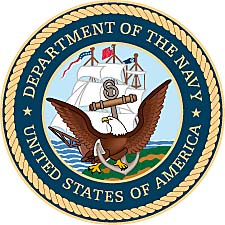
National Commander Clarence E. Hill explains how the Legion has made a difference in the past year during the Washington Conference Commander's Call.
The American Legion's lobbying efforts make a difference, and it's pretty clear to National Commander Clarence Hill. During the Washington Conference Commander's Call, Hill made that sentiment pretty clear to a packed room of nearly 800 Legion family members at the Renaissance Hotel, who later traveled en masse to Capitol Hill to meet with their respective senators and representatives.
"Will your actions today really make a difference? Will anyone listen? According to the issues on (the Legion's) legislative priority sheet last year, I think so," Hill said. "Advance appropriations for VA medical care: That's now Public Law 111-81. VA received advance appropriations for fiscal year 2010, before the public law was signed. I guess they heard you.
"VA appropriations for fiscal year 2010: It wasn't signed into law before the start of the fiscal year, but advance appropriations for VA's three medical accounts were included in a continuing resolution until the omnibus appropriations bill was signed. Looks like they got the message on that one, too."
Hill went on to say that VA funding met or exceeded nearly every recommendation by the Legion, and that while issues still exist with the new Post-9/11 GI Bill, he applauded Congress for keeping a close eye on the situation.
Hill also praised VA Secretary Eric Shinseki for his efforts in implementing the GI Bill. The secretary addressed Legionnaires during the Commander's Call and made a promise that he'll focus on an issue very close to their hearts: the backlog of VA disability claims.
"This is one area that we didn't progress as fast as I would have wanted. It has a little bit to do with me having to focus on that 9/11-GI Bill," Shinseki said. "That's not to say that we didn't work claims processing hard. Last year we completed 974,000 claims. And then we received a million new ones in return. Our productivity went up, and so did our receipts. We know that we're going to have to get better and faster at it.
"2010 is my year to focus on the backlog, to find and break all standing obstacles that have been part of holding us up. And try to get faster and better processing, and not just going fast, but getting higher-quality decisions out of those claims processors."
U.S. Rep. C.W. "Bill" Young, R-Fla., was presented with the Distinguished Public Service Award for Young's "commitment to our nation's military and intelligence communities, particularly to quality of life for military personnel and their families, and to a continued advocacy of medical research immunization programs, and to protecting the American flag from physical desecration."
Young was humbled by the award. "To receive an award like this, from men and women who have served in our military, who have made sure that America remains strong, that is a tremendous honor," he said. "
Young - who serves on the Appropriations Defense Subcommittee, and Military Construction, Veterans Affairs, and Related Agencies Subcommittee - vowed to continue to vote for the funding needed for U.S. servicemembers.
"We have got to provide whatever it is that our military needs to keep us safe," Young said. "My commitment is any training must be provided to prepare the troops for the mission. Any equipment or technology that must be provided for the mission must be provided."
Also on hand was Deputy Secretary of Defense William J. Lynne III, who briefed Legionnaires on the situation in both Iraq and Afghanistan.
"(U.S. servicemembers) have now fought in Iraq and Afghanistan for longer than we fought in World War I and World War II combined. Their sacrifice is bringing security to America and stability to many parts of the world," he said. "In Iraq, our forces continue to responsibly draw out on schedule. Iraq is beginning to emerge as a sovereign, stable nation.
"As our forces leave Iraq, we face tough new challenges in Afghanistan. As we've seen in the city of Marjah, the fighting is fierce. But the initial phase of the Marjah offensive is nearing completion. Our strategy, however, recognizes that military action is only the first step in a successful transition. The Afghan government and our forces must ultimately take responsibility for security and governance."
Rep. Jim Marshall, D-Ga. - a member of the Committee on Armed Services - asked Legionnaires to get behind his bill, H.R. 333, which eliminated the disabled veterans tax for all disabled military retirees. "Get your members to sign on to 333. It's an easy number to remember," he said. "Use that term ‘disabled veterans tax.'"
U.S. Rep. John Boozman, R-Ark., a member of the House Committee on Veterans' Affairs, echoed Hill's earlier comments when he stressed the importance of the Legion in gaining passage of legislation.
"Those of us on the Veterans' Affairs Committee really are working hard to push forward the things we need to get done for veterans," he said. "We can't do that as just members on the committee. We have to have you guys. Your leadership does a tremendous job, but they can't be effective without you. I can't tell you how important it is to share with your members of Congress, when you look them in the eye... and say, ‘Remember, we have this priority or that priority.' As a result, we really have been able to get a lot done in the last several years."
Legionnaires also heard from Ray Jefferson, assistant secretary of the Veterans' Employment and Training Services, Auxiliary National President Rita Navarreté and Sons of The American Legion National Commander Mark Arneson.
- Convention


